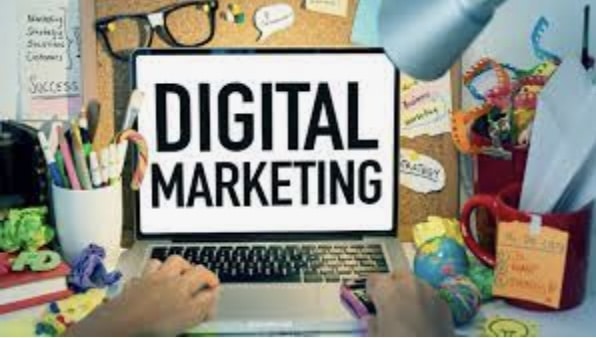What is Digital Transformation and Digital Marketing?
In the era of rapid technological advancement, businesses worldwide are confronted with two powerful buzzwords: Digital Transformation and Digital Marketing. These terms are often used interchangeably, leading to confusion. However, they represent distinct concepts that play crucial roles in a company’s growth marketing strategy and eventual success.
In this article, we’ll demystify digital transformation and digital marketing, highlighting their differences and exploring the associated techniques and benefits.
Digital Transformation
A digital transformation framework is a holistic approach that involves leveraging digital technologies to fundamentally change how an organisation operates and delivers value to its customers. It encompasses adopting technologies, realigning business processes, and the cultural shift necessary to embrace a digital-first mindset.
Digital Marketing:
Digital marketing, on the other hand, is a component of digital transformation that primarily focuses on promoting a brand, product, or service using various online channels, tools, and platforms. It aims to increase brand visibility, attract leads, engage customers, and ultimately drive revenue.
Difference between Digital Transformation and Digital Marketing:
#1 Scope and Purpose
Digital Transformation: Aims to revolutionise the entire business, from operations to customer experience, by leveraging technology.
Digital Marketing: Concentrates on marketing and advertising efforts using digital channels to achieve specific marketing goals.
#2 Customer-Centric vs. Marketing-Centric:
Digital Transformation: Prioritises customer experience and seeks to enhance it through technology.
Digital Marketing: Focuses on marketing campaigns to drive brand awareness, lead generation, and conversions.
#3 Cultural Shift:
Digital Transformation: Involves changing the organisational culture to be more agile, innovative, and digitally oriented.
Digital Marketing: Typically, the existing company culture remains largely unchanged.
Digital Transformation Techniques
- Digital Technologies Adoption: Incorporating cloud computing, big data analytics, artificial intelligence, and the Internet of Things (IoT) into business operations.
- Process Reengineering: Redesigning existing processes to take advantage of digital capabilities and automation.
- Customer Experience Enhancement: Focusing on improving the customer journey by delivering personalised experiences.
- Data-Driven Decision-making:Using data analytics to make informed, data-backed decisions that optimise processes and strategies.
Benefits of Digital Transformation:
- Enhanced Customer Experience: Improved customer satisfaction through personalised interactions and quicker response times.
- Operational Efficiency: Streamlined processes and reduced operational costs through automation.
- Competitive Advantage: Staying ahead of competitors by embracing digital technologies and evolving with market trends.
- Innovation: Fostering a culture of innovation and adaptability within the organisation.
Digital Marketing Techniques:
- Search Engine Optimization (SEO): Optimizing website content to rank higher on search engine results pages (SERPs).
- Content Marketing: Creating and distributing valuable content to attract and engage target audiences.
- Social Media Marketing:Leveraging social media platforms to connect with audiences and promote products or services.
- Email Marketing: Sending targeted emails to nurture leads and maintain customer relationships.
Benefits of Digital Marketing:
- Increased Visibility: Boosting brand visibility in the digital landscape through targeted marketing efforts.
- Lead Generation: Attracting and converting potential customers into leads.
- Data-Driven Insights: Utilizing data analytics to refine marketing strategies and improve campaign effectiveness.
- Global Reach: Expanding market reach beyond geographical boundaries.
Conclusion:
In the evolving digital landscape, it’s vital to understand the distinctions between digital transformation and digital marketing. Digital transformation’s techniques revolve around adopting digital technologies, process reengineering, and enhancing customer experiences. Its benefits include improved customer satisfaction, operational efficiency, competitive advantage, and a culture of innovation. Digital marketing, on the other hand, uses techniques like SEO, content marketing, social media marketing, and email marketing to boost brand visibility, generate leads, gain data-driven insights, and expand market reach.
Both digital transformation and digital marketing are essential components of a growth-oriented strategy. By utilising the right mix of these approaches, businesses can adapt to change, engage customers effectively, and thrive in the digital age. But more importantly, it is essential for a company to invest in a good digital marketing agency. Amura Marketing Technologies is a new age growth marketing company, helping companies achieve their marketing goals through content management, SEO optimisation, UI/UX design, PPC ad campaigns and many more. With over 15 years of experience, Amura has been catering to various industries, including manufacturing, construction, healthcare, pharmaceuticals, FMCG, SaaS, etc.
